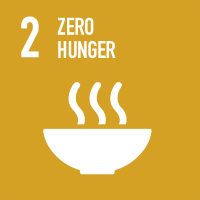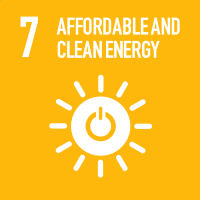Studying at the University of Verona
Here you can find information on the organisational aspects of the Programme, lecture timetables, learning activities and useful contact details for your time at the University, from enrolment to graduation.
Study Plan
This information is intended exclusively for students already enrolled in this course.If you are a new student interested in enrolling, you can find information about the course of study on the course page:
Laurea magistrale in Biotecnologie per le biorisorse e lo sviluppo ecosostenibile - Enrollment from 2025/2026The Study Plan includes all modules, teaching and learning activities that each student will need to undertake during their time at the University.
Please select your Study Plan based on your enrollment year.
1° Year
| Modules | Credits | TAF | SSD |
|---|
1 module among the following1 module among the following1 module between the following1 module among the following1 module between the following2° Year activated in the A.Y. 2024/2025
| Modules | Credits | TAF | SSD |
|---|
1 module between the following1 module between the following1 module among the following| Modules | Credits | TAF | SSD |
|---|
1 module among the following1 module among the following1 module between the following1 module among the following1 module between the following| Modules | Credits | TAF | SSD |
|---|
1 module between the following1 module between the following1 module among the following| Modules | Credits | TAF | SSD |
|---|
1 module among the followingLegend | Type of training activity (TTA)
TAF (Type of Educational Activity) All courses and activities are classified into different types of educational activities, indicated by a letter.
New frontiers in biocatalysis (2023/2024)
Teaching code
4S008292
Credits
6
Language
Italian
Scientific Disciplinary Sector (SSD)
BIO/10 - BIOCHEMISTRY
Courses Single
Authorized with reserve
The teaching is organized as follows:
Teoria
Laboratorio
Learning objectives
The course aims to provide the student with the basic and advanced knowledge of biocatalysis applied in the industrial, therapeutic and diagnostic fields. In particular, the main objectives of the course concern the understanding: 1) of the principles of enzyme catalysis; 2) the new frontiers in enzymes applications; 3) molecular methods to optimize the reactivity of enzymes; 4) innovative approaches for the development of artificial enzymes that show non-natural reactivity.
Prerequisites and basic notions
Knowledge of basic concepts of protein biochemistry, acquired during the bachelor degree courses in biotechnology or biology, is desirable. However, some basic concepts will be overviewed at the beginning of the course.
Program
The topics listed below are indicative of the syllabus content and may be subject to changes by the lecturer:
THEORY:
- Introduction to the course and general information on biocatalysis
- Protein engineering for the optimization of biocatalysts: chemical modifications, site-directed metagenesis (rational design), random mutagenesis (directed evolution), semi-rational mutagenesis approaches, selection and screening methods, case studies (stability improvement: thermal and pH, catalytic efficiency, regio/stereo selectivity, etc.).
- Enzymes in unconventional media (medium engineering)
- Homogeneous enzyme catalysis
- Heterogeneous enzymatic catalysis (immobilization)
- The CRISPR-Cas system principles and applications
-Biocatalysis applied to plastics
LABORATORY:
Laboratory experiences to be defined.
Teaching material:
-Slides of the course (provided at the end of the lecture)
-Scientific articles (references cited during the lectures)
Didactic methods
Lessons will be delivered exclusively in class without any use of emergency online teaching methods.
For teaching experiences in the laboratory, attendance is mandatory.
Learning assessment procedures
The acquired skills will be assessed through an oral examination. The exam consists of two/three questions regarding topics included in the course syllabus. Exam methods are not differentiated between attending and non-attending students.
Evaluation criteria
The final assessment consists of an oral dissertation aimed at ascertaining both that the student has acquired the knowledge defined in the course syllabus as well as the ability to perform the required logical-deductive links. In particular, the completeness of the exposition, the level of integration between the various course topics as well as the scientific appropriateness of the language will be evaluated.
Criteria for the composition of the final grade
Not applicable for this course.
Exam language
Italiano




